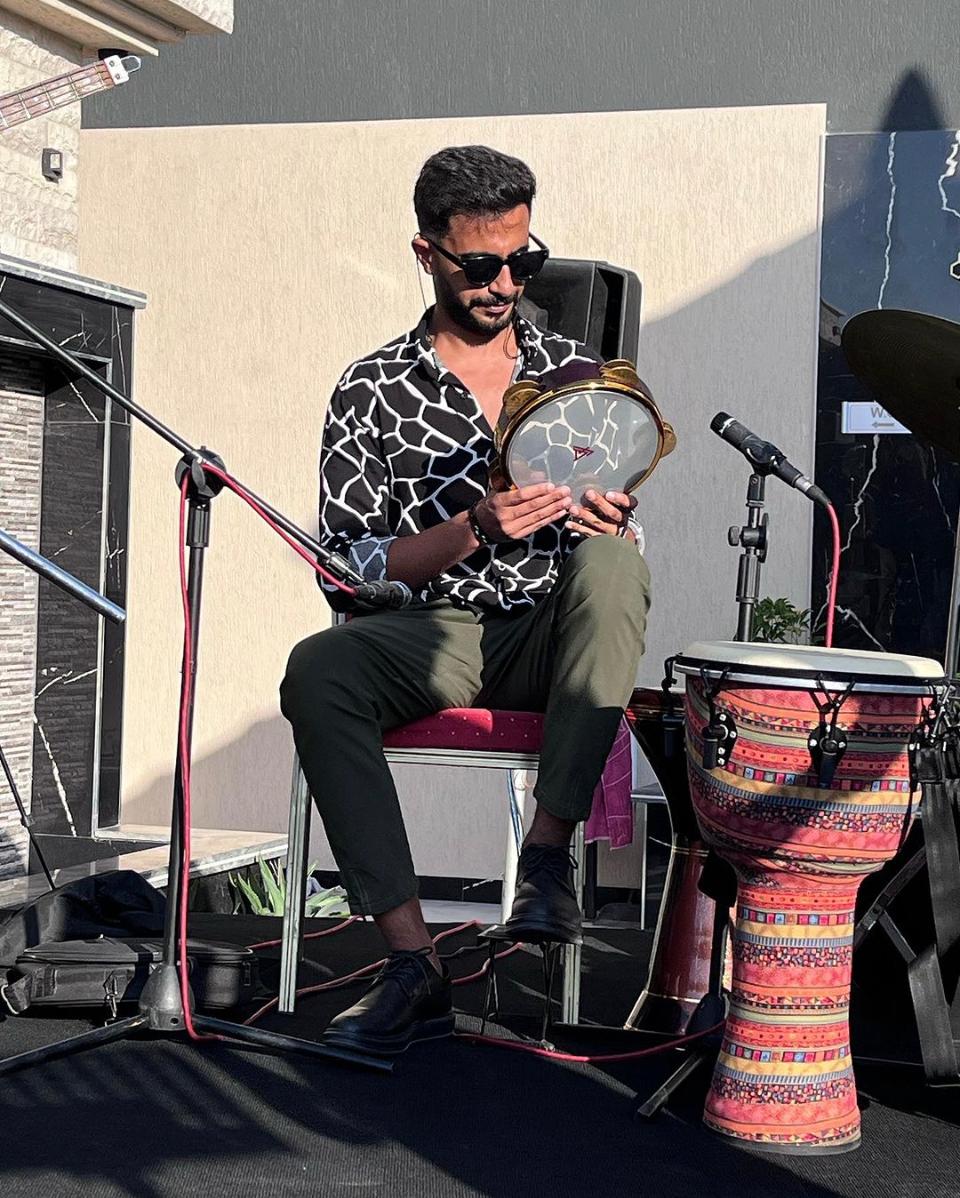A Gaza Musician Has Been Documenting the Daily Reality of the War
"There is no water, and bread is the hardest thing to find in the Gaza Strip,” musician Fares Anbar told VICE News.

Before the war in Gaza, Fares Anbar’s life was all about “music, music, music.”
On October 6th, the 27-year-old musician was a member of Sol Band, a music group preparing to release new songs at the end of 2023 and into 2024. They were also prepping for rehearsals for concerts abroad.
But the events that unfolded after October 7th drastically changed his life, leaving his career shattered, his band’s future in jeopardy, and he now fights for daily survival.
“We are living through the worst days that Palestinians have ever lived in history, especially for the people in Gaza,” Anbar told VICE News over WhatsApp.
“I spend my days thinking about how to protect myself from death.”
At least 11,000 people have been killed in Gaza in the last month, after Israel launched its retaliation on the strip in response to an attack by Hamas that killed at least 1,400 Israelis and took over 200 people hostage.
“This is the worst time in terms of the bombardments, and the harsh siege, this the first time that it has been carried out [like this].”
Gaza had already been under a blockade for 16 years, limiting the movement of goods and people coming in and going out. After the Oct. 7th attacks, Israel announced a “total siege” of the area, intensifying the humanitarian crisis, cutting off electricity and preventing the import of essential goods and aid.
Human rights groups have warned food, water, and fuel levels are running extremely low and hospitals warn they are on the verge of collapse.
“We can’t sleep much, at most two, three to four hours, if we manage to sleep,” Anbar said.
“From early morning, we start to look for even half a pack of bread, and a bucket of water for drinking and washing.
“There is no water, and bread is the hardest thing to find in the Gaza Strip.”
Anbar had been staying at the Al-Shifa hospital in the north but has recently moved to Deir El-Balah in central Gaza, while his family are in the south. He says because of the Internet blackouts it’s difficult to reach them and to know if they’re safe.
“Now we are trying to stay alive,” he says. ”We hope that we can live through this war that is not clear when it will end. We don’t know whether we will still be alive, only God knows.”
He also runs a small business making musical instruments like drums and the oud, selling them to neighbouring countries like Turkey, but that work came to an abrupt halt as he’s now unable to travel anywhere.

He’s turned to social media to show the world what life is really like for people in Gaza right now and documents his daily struggles on Instagram.
Anbar hopes that through doing this, people around the world will be more understanding of his situation and those whose situation is worse than his.
“Thanks to God, we hope for everyone to stand up for change in the world, and to stop oppression everywhere, not only Gaza.”



